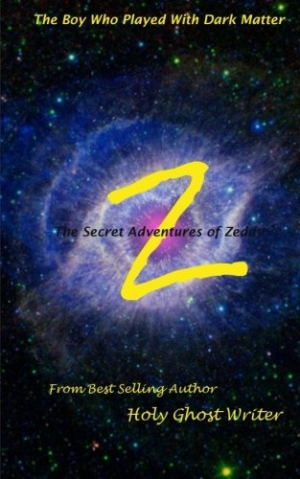The Boy Who Played with Dark Matter
Secret Adventures of Zeddy
In a world where caffeine is distributed only by terrorists and 1000-SPF sunscreen isn’t strong enough, scientists long for a discovery that will restore Earth to a greener state. However, the International Government likes to think it has everything under control, especially since it issues twenty to thirty new laws each day to keep its constituents current.
Six-year-old Zeddy, whose “IQ is off the charts,” soon finds himself racing to avoid capture when his physicist father, Zane, goes missing. His mother, Zadie, suspects that the International Military Police have taken Zane, but Nimueh, the ancient Lady of the Lake, believes that he’s in a parallel universe in a neighboring constellation. She also believes that young Zeddy, with a “brain that is exceptionally rare,” is the key to saving Earth.
The Boy Who Played with Dark Matter is a charming tale told in the tradition of A Wrinkle in Time, by Madeline L’Engle. Like young Charles Wallace, who is misunderstood by his teachers and peers, Zeddy finds himself alone and forced to “hide as much as possible in front of others.” His only friend is a zutterfly made of dark matter, which proves to be a significant clue to finding his father. Other classic tales influence this story as well, such as The Man of La Mancha, The Count of Monte Cristo, and some King Arthur legends.
The postapocalyptic setting is filled with fascinating social reforms, such as newly engaged couples being required to take parenting classes and the International Military Police kidnapping gifted children in order to force them into government service. The story’s technologies have plausible explanations, like the transporter device that was supposed to get Zeddy’s father to Zamira (a dark-matter planet) or the pretty crystal that contains dark energy.
At times, Zeddy’s dialogue is overly mature for his age, but his adult-like speech patterns might be attributed to his high IQ. Still, the character’s adventures are appropriate for his tender years, like chatting with a dark-matter butterfly, believing in Nimueh’s magical gifts, or convincing a nervous professor to divulge information about Zane’s last experiment. These scenes are paced in short chapters, making them just the right length for young children with shorter attention spans. Although six-year-olds aren’t likely to have the reading abilities to tackle this story, it would make excellent bedtime reading with a parent’s help. Even teens might be amused by all the high-tech explanations and the challenge of solving the author’s mystery.
Known as Holy Ghost Writer, the author has placed clues about his/her identity throughout the series. The first reader who figures out the author’s identity will earn a $1,000 reward. Despite its part in the larger series, The Boy Who Played with Dark Matter makes a fine read all on its own, although a reader will most certainly crave the sequel to find out if Zeddy gets his father back.
Reviewed by
Emily Asad
Disclosure: This article is not an endorsement, but a review. The publisher of this book provided free copies of the book and paid a small fee to have their book reviewed by a professional reviewer. Foreword Reviews and Clarion Reviews make no guarantee that the publisher will receive a positive review. Foreword Magazine, Inc. is disclosing this in accordance with the Federal Trade Commission’s 16 CFR, Part 255.

